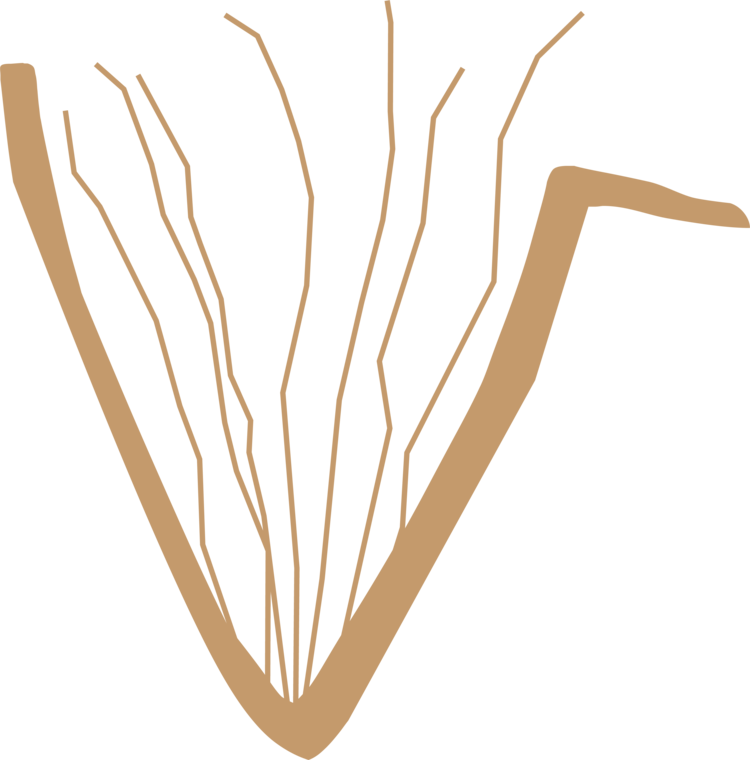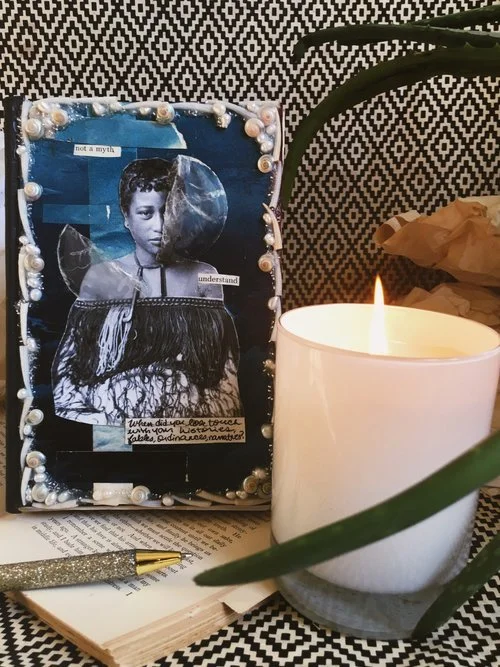“Not a Myth”
Maori woman
Words on cover:
“not a myth”
”understand”
When did you lose touch with your histories, fables, ordinances, narratives?
Details:
98pp.
6x8.25”
Materials:
synthetic hair, freshwater pearls, various paper,
limpet shells, black micro poms, tusk seashells, glass seed beads
Notes:
Turning our cultural stories, anecdotes, and proverbs into myths—turning our peoples’ existence and contributions to the world into myths!— is an erasure tool of Western culture. In a slow, subtle campaign throughout the ages, Western society has whitewashed history, replacing melanated peoples with themselves (like the history of then Dark Ages, the real Hebrews, the Tasmanian people, and Indigenous North and South Americans), reducing the truths of these peoples’ contributions into myth. It’s a dire consequence of colonization where the victor gets to write himself as the hero he imagines himself to be.
Today after decades of seeing their presentation of our stories, we find ourselves duped into questioning the veracity and “civility” of our cultures’ narratives, having lost touch with the stories, ordinances, and philosophy that our peoples used to deliver truth to the next generation. Instead we embrace their manufactured, saccharine, Disneyified moral stories that have no substance and no longevity. When we allow our peoples’ stories to disappear from time it is intergenerational, intracultural irresponsibility. Our people left us narratives while this culture gives us TV episodes, Youtube, Instagram, Netflix, and other visually-communicated ideas about the world with the intent to replace the narratives that were meant to guide us through time and give us silliness instead of substance.
How do we know we’ve started to mythologize ourselves? When we realize how little of our time we dedicate to studying our peoples’ history, learning ways to stay connected to our family structures, writing our memories, sharing oral histories, going to libraries, speaking truth to the next generation, creating proverbs and sharing anecdotes to uplift, etc. If we spend more time stimulating eyes and ears, eating and drinking, venerating singing and dancing and not investing in building our memories, we are contributing to allowing the earth to forget us. Allowing our peoples to be forgotten by each other.

